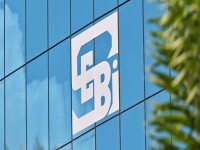Performance linked fees may soon become reality in India. The Mutual Fund Advisory Committee (MFAC) has recommended to SEBI that the market regulator should consider introducing performance linked fee structure in the Indian mutual fund industry to rationalize TER, said two senior officials familiar with the development.
A senior fund official who is on the MFAC told Cafemutual that while underperforming schemes will no longer enjoy similar TER as of performing schemes, such schemes cannot attract fresh inflows after three years.
The committee has reportedly suggested SEBI that if a scheme underperforms its benchmark by 2% in the first year, fund house will have to reduce TER by 0.25%. Further, such a scheme will have to reduce its TER by another 0.25% in the second year if it continues to underperform its benchmark by 2%. Finally, in the third year of underperformance to the extent of at least 2%, the scheme will have to reduce its TER by 0.50%. Also, such a fund house will have to close subscription for fresh sales on its scheme after three years of underperformance.
On the other hand, if a scheme outperforms its benchmark by 5%, fund houses can increase its TER by 0.25%.
Performance linked fee is prevalent in a few developed markets. In the most recent examples, two leading global investment houses - Fidelity International and Allianz Global Investors have linked their management fees with the performance of their active schemes. While Fidelity International follows this model for charging fees on its funds sold internationally, Allianz Global charges investors a management fee only if they beat their benchmarks across all active schemes. In fact, a few fund houses such as Orbis Investment Management operate many of their active funds on a ‘no performance no fee’ model; the company refunds cash to investors if their funds underperform their respective benchmarks. Many of these investment houses have been under pressure to justify charges under active funds.
In 2005, Sahara Mutual Fund had introduced such a model in India. However, the model did not fare well among investors and distributors.
The fund house had segregated the fee structure in two buckets– recurring expenses and management fees. While they did not touch recurring expenses, the management fees varied with the performance. For instance, if the fund delivered positive returns but did not manage to beat its benchmark, the fund house charged half the management fees. Similarly, the fund house charged full management fee if the fund outperformed its benchmark. There were no management fees on negative returns and underperformance.
SEBI is likely to discuss these recommendations at its upcoming board meeting scheduled to be held on September 18.








